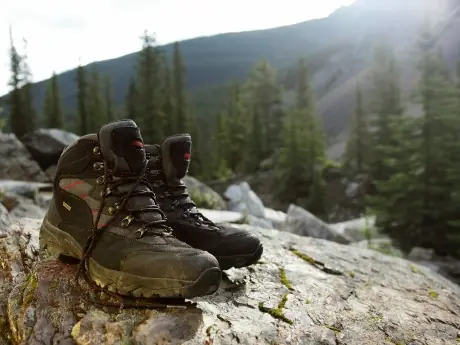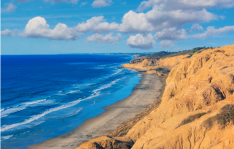But did you know there are dozens of other long trails scattered across the U.S. that quietly snake over picturesque mountains and through sweeping plains? Below you’ll find five lesser-known long hikes to add to your bucket list.
The Long Trail (Vermont)
1 of 6
Vermont's Long Trail is the oldest long-distance hiking trail in the U.S. and was actually the inspiration for the Appalachian Trail. Running from the southern state border all the way to Canada, this 272-mile footpath follows the main ridge of the Green Mountains. The trail winds through rugged terrain and alpine tundra, past mountain lakes and through hemlock forest.
Hikers have a chance to spot some of Vermont's most elusive wildlife: black bears, moose and peregrine falcons. The best time to head out for a hike on the Long Trail is late summer or early fall, when the black flies have abated and the crowds are thinning. If you manage to walk all 272 miles of the trail, either all at once or piece-by-piece, you'll officially earn the title of End-to-Ender. Learn more about the trail here.
The Mountains-to-Sea Trail (North Carolina)
2 of 6
Spanning 1,175 miles from Clingmans Dome in Great Smoky Mountain National Park to the Atlantic Ocean in North Carolina's Outer Banks, the Mountains-to-Sea Trail is North Carolina's hiking pride and joy. This diverse trail cuts through ancient mountains, farms, colonial towns and sand dunes as it snakes east to west through the state.
Though the trail is a work in progress, as of this writing there are nearly 700 miles of wilderness path and another 400-plus miles on back roads and bike routes. Though the goal is for the Mountains-to-Sea Trail to eventually become a continuous off-road trail, most hikers enjoy the mix of wilderness trekking and country walking that the current route provides. Learn more about the trail here.
The Ice Age Trail (Wisconsin)
3 of 6
One of 11 National Scenic Trails, Wisconsin's Ice Age Trail begins in the eastern part of the state at Potawatomi State Park and ends in the west at Interstate State Park in St. Croix Falls, nearly 1,000 miles later. The Ice Age Trail travels in the footpath of ancient glaciers, highlighting the unique landforms left behind.
Though the Ice Age Trail is not yet complete, (nearly 600 miles are marked with a yellow blaze and another 400 miles are on unmarked connecting roads), a few intrepid people set out to hike the entire trail each year. The Ice Age Trail gives hikers a sense of the powerful geographic history of the region, while taking them through Wisconsin's wilderness and its small communities. Learn more about the trail here.
The Hayduke Trail (Utah to Arizona)
4 of 6
The Hayduke Trail is an extremely challenging and extremely beautiful, 800-mile backpacking route through some of the most incredible scenery on the planet. The trail was designed to highlight the must-be-seen-to-be-understood red rock wilderness of the American Southwest. It links six National Parks (Arches, Canyonlands, Capitol Reef, Bryce Canyon, Grand Canyon and Zion) as well as national monuments and national recreation areas.
This trail is not for the inexperienced (the terrain is rugged, the trail is unmarked and water sources can be few and far between), but those that hike the trail are rewarded with natural beauty unlike anywhere else. Learn more about the trail here.
The North Country Trail (New York to North Dakota)
5 of 6
The longest National Scenic Trail in the United States (it is over twice as long as the Appalachian Trail), the North Country Trail is 4,600 miles of footpath that crosses through seven states. Though only a few have attempted a thru-hike of the trail, hundreds of thousands take advantage of sections of it every year.
Highlights of the trail include New York's Adirondack Mountains, the shores of the Great Lakes, the primitive waterways of Minnesota's Boundary Waters and the sweeping plains of North Dakota. Learn more about the trail here.







Discuss This Article